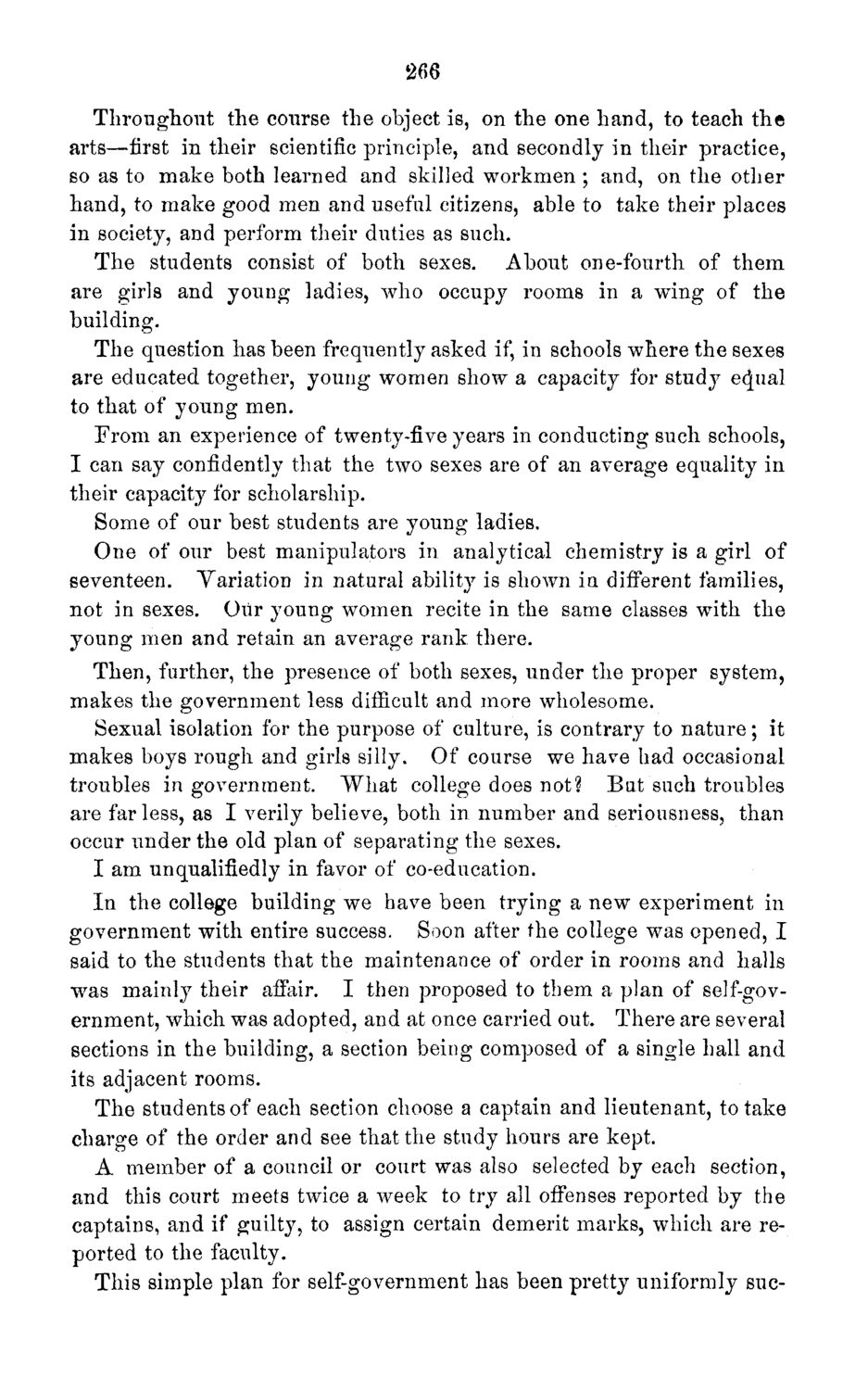| |
| |
Caption: Board of Trustees Minutes - 1871
This is a reduced-resolution page image for fast online browsing.

EXTRACTED TEXT FROM PAGE:
266 Throughout the course the object is, on the one hand, to teach the arts—first in their scientific principle, and secondly in their practice, so as to make both learned and skilled workmen ; and, on the other hand, to make good men and useful citizens, able to take their places in society, and perform their duties as such. The students consist of both sexes. About one-fourth of them are girls and young ladies, who occupy rooms in a wing of the building. The question has been frequently asked if, in schools where the sexes are educated together, young women show a capacity for study e^ual to that of young men. From an experience of twenty-five years in conducting such schools, I can say confidently that the two sexes are of an average equality in their capacity for scholarship. Some of our best students are young ladies. One of our best manipulators in analytical chemistry is a girl of seventeen. Variation in natural ability is shown in different families, not in sexes. Our young women recite in the same classes with the young men and retain an average rank there. Then, further, the presence of both sexes, under the proper system, makes the government less difficult and more wholesome. Sexual isolation for the purpose of culture, is contrary to nature; it makes boys rough and girls silly. Of course we have had occasional troubles in government. What college does not? Bat such troubles are far less, as I verily believe, both in number and seriousness, than occur under the old plan of separating the sexes. I am unqualifiedly in favor of co-education. In the college building we have been trying a new experiment in government with entire success. Soon after the college was opened, I said to the students that the maintenance of order in rooms and halls was mainly their affair. I then proposed to them a plan of self-government, which was adopted, and at once carried out. There are several sections in the building, a section being composed of a single hall and its adjacent rooms. The students of each section choose a captain and lieutenant, to take charge of the order and see that the study hours are kept. A member of a council or court was also selected by each section, and this court meets twice a week to try all offenses reported by the captains, and if guilty, to assign certain demerit marks, which are reported to the faculty. This simple plan for self-government has been pretty uniformly sue-
| |